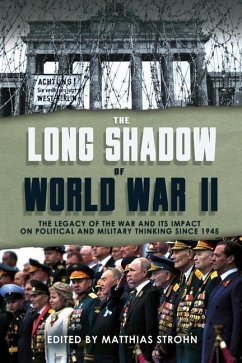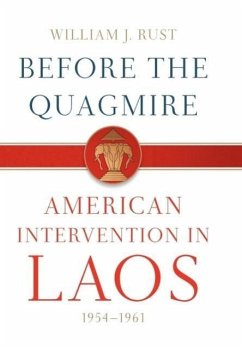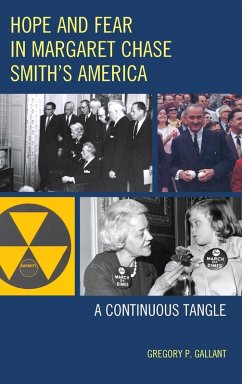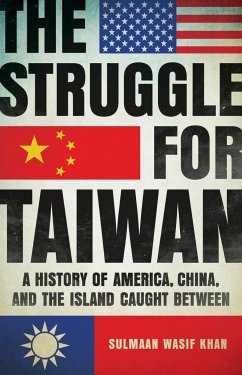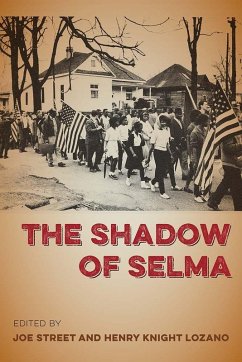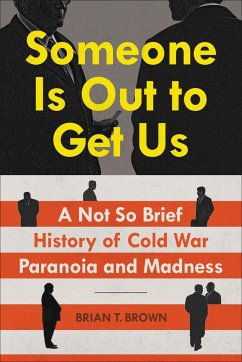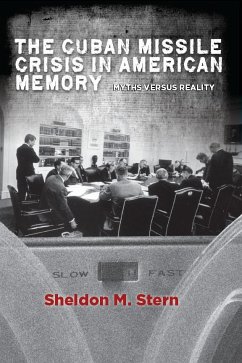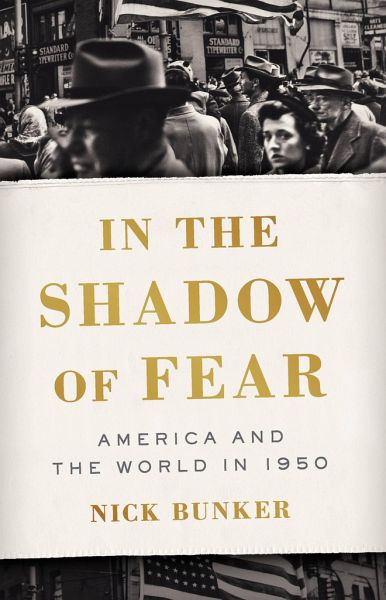
In the Shadow of Fear
America and the World in 1950
Versandkostenfrei!
Versandfertig in über 4 Wochen
26,99 €
inkl. MwSt.

PAYBACK Punkte
13 °P sammeln!
"At the midpoint of the twentieth century, Sir Winston Churchill called the United States "this gigantic capitalist organization, with its vast and superabundant productive power." The dollar reigned supreme and Pittsburgh and Detroit were at the summit of their power and prestige. From Washington, American statesmen sought to guide the destiny of nations. Victorious in the elections of 1948, Harry Truman and the leaders of the Democratic Party hoped to use the country's economic might to build on Franklin Roosevelt's New Deal. And then-in the space of ten crowded months, between the fall of 1...
"At the midpoint of the twentieth century, Sir Winston Churchill called the United States "this gigantic capitalist organization, with its vast and superabundant productive power." The dollar reigned supreme and Pittsburgh and Detroit were at the summit of their power and prestige. From Washington, American statesmen sought to guide the destiny of nations. Victorious in the elections of 1948, Harry Truman and the leaders of the Democratic Party hoped to use the country's economic might to build on Franklin Roosevelt's New Deal. And then-in the space of ten crowded months, between the fall of 1949 and the summer of 1950-America witnessed a series of dramatic and far-reaching events that sent the country spiraling into anxiety, uncertainty, and deep paranoia. In In the Shadow of Fear, award-winning historian Nick Bunker offers a compelling and richly-textured portrait of the months when the "long 1930s" finally ended and the Cold War took hold. In September 1949, it was revealed that the Soviet Union had exploded an atomic bomb, and Mao's army swept through China. In America, the age of FDR faded as an aggressive Republican Party, desperate to regain power, seized on rifts among its opponents, and President Truman's program for universal health care and civil rights went down to defeat. The young Senator Joe McCarthy first charged that the State Department was packed with communists, ambushing Truman and his colleagues with a style of politics that aroused powerful emotions and deepened division. A new mood of anger in the nation left many Americans calling in vain for a return to consensus. And then, in June 1950, the Korean War began, and the Cold War started in earnest. It was in this pivotal period, Bunker shows, that we can locate the beginnings of America's unprecedented postwar economic expansion; the dawning of the Taiwan question; the origins of America's involvement in Vietnam; and the birth of NATO, the hydrogen bomb, and of what would become the European Union. In his arresting chronicle of domestic and foreign politics at the turn of the decade, Bunker reveals a nation divided, outmaneuvered by its adversaries, and potentially facing the end of its supremacy on the world stage. With a novelist's eye for detail and anecdote, Bunker recounts the machinations of familiar characters like Truman, Stalin, and Mao alongside those of people prominent at the time, but now largely forgotten: the labor leader John L. Lewis, 'Mister Republican' Senator Bob Taft, McCarthy's foe Margaret Chase Smith, the fallible New York mayor William J. O'Dwyer, and many others. A striking and vividly rendered account of America on the brink, In the Shadow of Fear offers unmatched insight into a period much like our own, when the nation confronted mounting political crises at home and abroad"--




